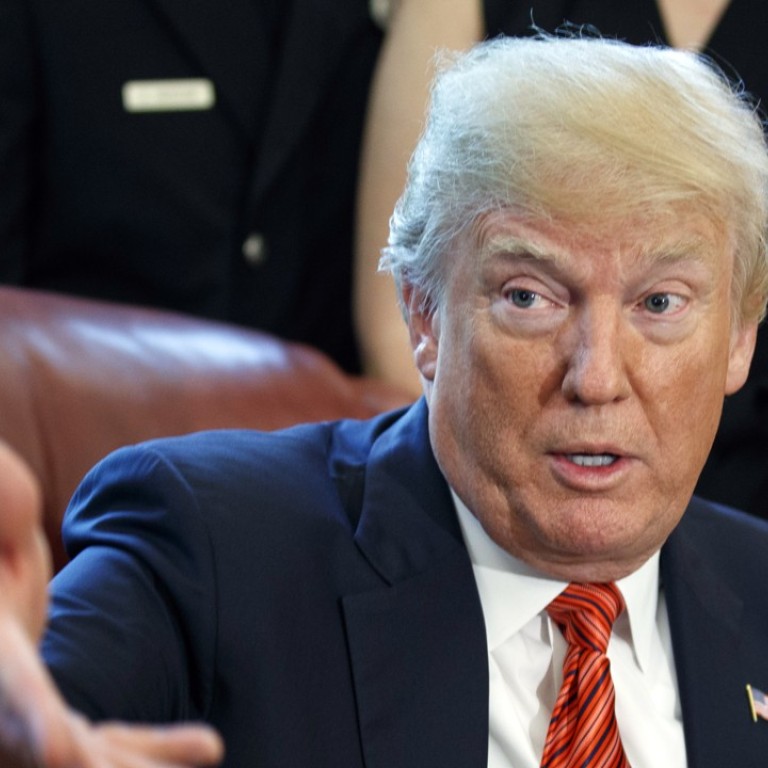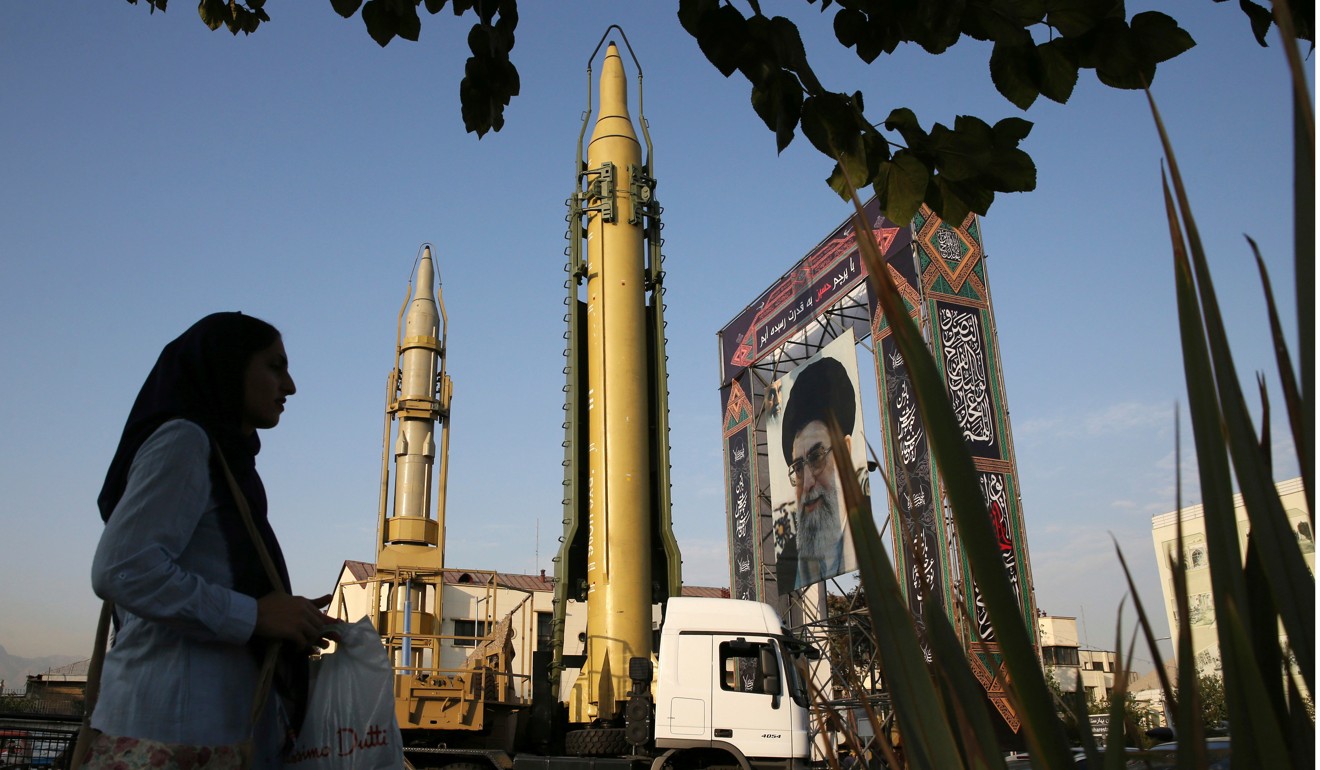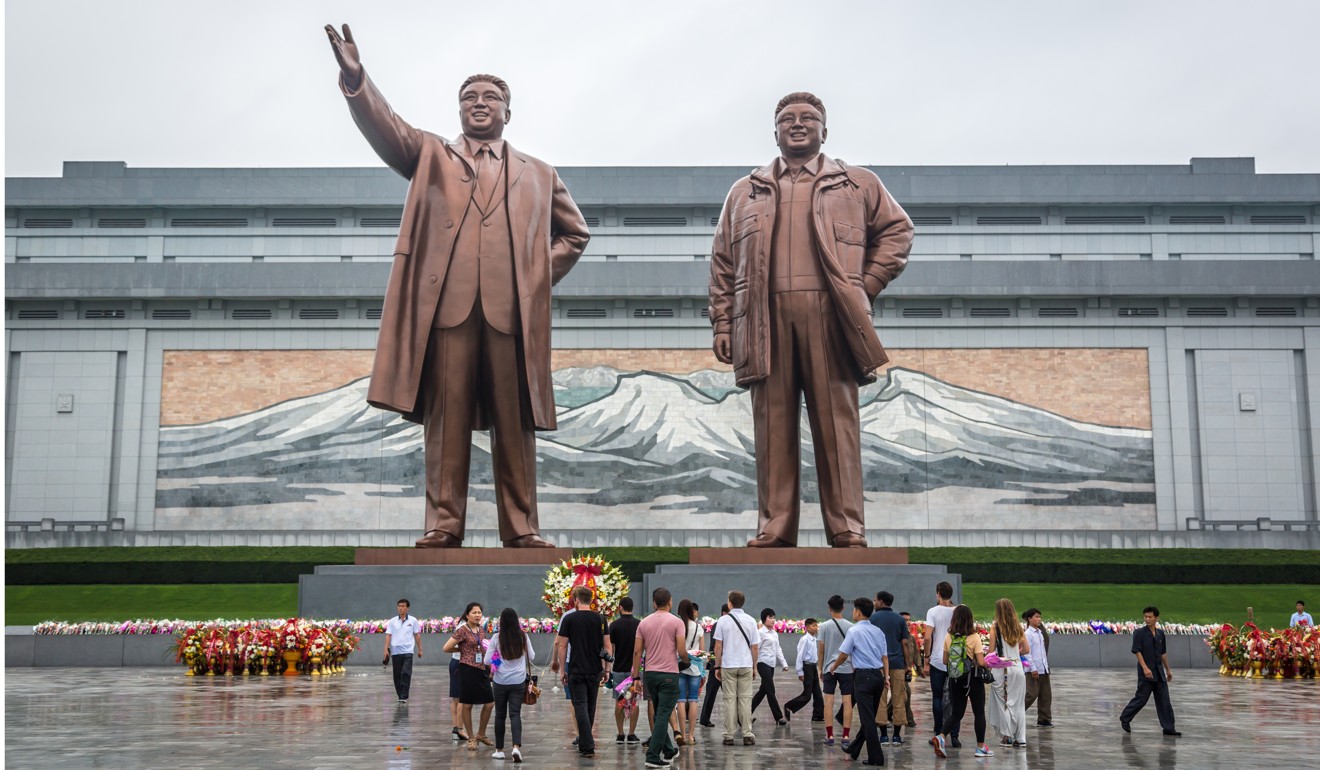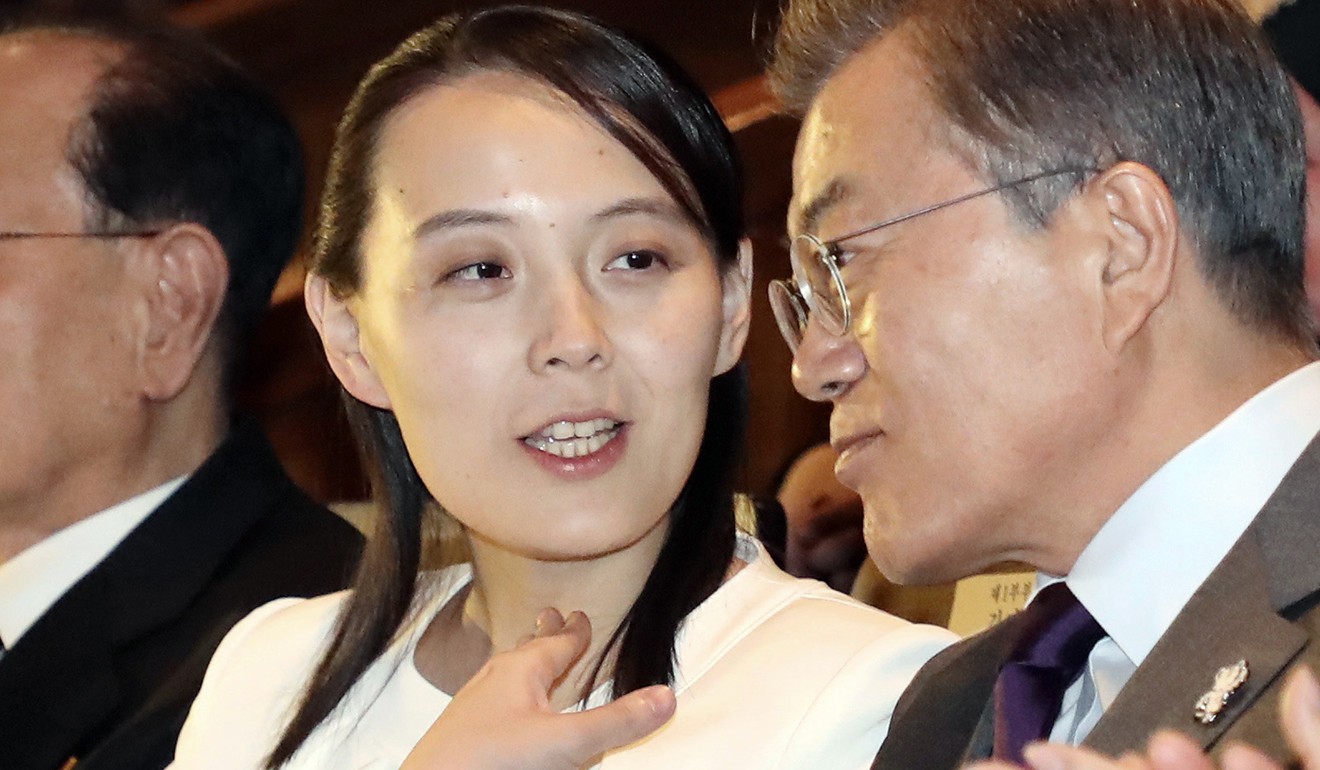
A Nobel Peace Prize for US President Donald Trump is last thing the world needs
It may have just been a throwaway line for President Moon Jae-in in the afterglow of the Korean summit, but many could mistakenly take it literally – Trump among them. If anyone deserves the prize, it’s Moon himself
According to a Reuters report, an official from the presidential Blue House in Seoul said President Moon had made the comment in response to a congratulatory message from Lee Hee Ho, widow of his predecessor Kim Dae-jung.
Perhaps Moon was just being polite and deferential in agreeing with Lee, who broached the subject first. Maybe he also felt he needed to get himself into US President Donald Trump’s good books ahead of tough negotiations with the US over trade and security issues.
After all, as they say, flattery will always get you somewhere, and with this occupant of the White House, everywhere, probably.
But suggesting that he deserves the Nobel Peace Prize is more than just feeding his vanity. It is tantamount to rewarding his crude approach to conducting relations with other countries – tearing up or reneging on international agreements which previous American administrations worked painstakingly to secure but which he dislikes, and bulldozing or threatening his way to what he wants.
As Koreas, China and India talk peace, is this Asia’s moment? Not so fast
Furthermore, while it is true that both the US and North Korea have pulled back from the brink of a head-on collision, it is premature to say the stand-off has ended.

To be fair, there is no denying that the additional economic sanctions which the US has rallied the world to pile on Pyongyang as punishment for its determined quest to acquire nuclear weapons have been a factor in Kim’s change of course.
That US-led “maximum pressure” campaign reportedly cut North Korean exports by nearly US$3 billion, which has got to hurt for an already fragile economy. For example, paper has become so scarce that newspapers there have to cut pages as well as circulation.
Hang on, what language is Kim Jong-un speaking?
And according to an essay in the May/June issue of Foreign Affairs, air controllers in Pyongyang had to telephone their South Korean counterparts to coordinate the arrival by plane of the North Korean team for the Winter Olympics in Pyeongchang in February, instead of using the standard global satellite navigation system, because they had defaulted on payment.
But the North Koreans have endured sanctions and the hardships that come with them for years, if not decades. There have been no reports of mass starvations in the past year. Recent visitors to Pyongyang reportedly saw karaoke bars still open for business. Blogger Anna Parker wrote of French fries and milk shakes in malls, and of smartphones, tablets, and HDTV sets on sale in stores. If true, all this would suggest that North Korea is not at a breaking point.

It must be also pointed out that even if the sanctions were a decisive factor, they would have lost some of their bite had China not joined in – as much for its own objective of not wanting a nuclear-armed North Korea that could start Japan and South Korea down the same road as its desire to acquire some leverage when bargaining with the US over trade.
So should Trump share the prize with Chinese leader Xi and, dare I say it, Kim?
But what of Trump’s threat to rain “fire and fury” on Pyongyang? Did it have an effect? While Kim will not lightly dismiss that as mere bluster, he must also know that as long as he does not fire the first shot, it is unlikely the US will launch a pre-emptive first strike against all advice and objections by Tokyo, Seoul and some of Trump’s own advisers.
Why Kim’s China visit raises – and dashes – hopes for Trump summit
So what makes the North Korean leader soften his hardline stance and his defiant and belligerent tone so unexpectedly? Did Beijing, the only place Pyongyang can look to for salvation when the Yankees are at the gate, send some signals that made him sit up and review his options?
No outsider can know for sure, but is it not possible that the simplest answer might be the correct one – Kim is confident Pyongyang has already completed what it needs to do to acquire the means to deter any mortal threat to its regime and is now ready to change tack and focus on the economy.
It would appear Kim said as much himself. In his 2018 New Year message, he said the “perfecting” of nuclear forces opened up “bright prospects for the building of a prosperous country” before he went on to enumerate some of the key measures to be taken.
Then came this olive branch to Seoul. Noting that this year marked the 70th anniversary of the founding of the Democratic People’s Republic of Korea and the imminent staging of the Winter Olympics in the south, he told his people: “In order to not only celebrate these great national events in a splendid manner but also demonstrate the dignity and spirit of the nation at home and abroad, we should improve the frozen inter-Korean relations and glorify this meaningful year.”

President Moon, who expressed hope in November 2017 that North Korea would take part in the Olympics, leapt at the opportunity. And so a North Korean team led by Kim’s younger sister Kim Yo-jong went to Pyeongchang, all expenses paid by Seoul.
According to the Foreign Affairs article, penned by Victor Cha, a professor at Georgetown University, who was to have been US Ambassador to Seoul before his nomination was withdrawn by the Trump administration, and Dr Katrin Fraser Katz, a former staffer of the US National Security Council and Korea specialist, the next step came in March.
After the Olympics, Moon sent his National Security Adviser Chung Eui-yong to Pyongyang to call on Kim. According to a Reuters report, the South Korean intelligence chief Suh Hoon, who helped arrange two previous summit meetings between the North and South in 2000 and 2007, went along.
After two days of meetings, Kim agreed to cross into the South to meet Moon in April as well as call a moratorium on nuclear and missile testing. The rest, as they say, is history.
Now, a Peace Prize for President Moon too, no?
Leslie Fong is a former editor of The Straits Times

